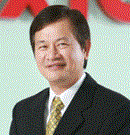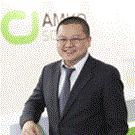The SSL industry has seen substantial growth recently that is only to increase over the next few years. During the Taiwan Solid State Lighting forum at Taiwan International Lighting Show (TILS) 2014 on March 20th, industry experts shared their insight on the direction the SSL industry will take in the future. Panelists discussing the future development and challenges of SSL included Rensselaer Polytechnic Institute Director and Professor Robert Karlicek, Jr, lighting designer and Director of Professional Lighting Designers’ Association James Wallace, Research Director for Panasonic Takuya Komoda, Chairman of Lextar Electronics David Su, and Vice Chairperson of International Affairs Committee Taiwan Lighting Fixture Export Association Michael Ng.
 |
 |
 |
|
|
|
Robert Karlicek, Jr |
James Wallace |
Takuya Komoda |
|
|
 |
 |
|
David Su |
Michael Ng |
Q: What is your opinion on SSL?
James Wallace: As a lighting designer, I have concerns about performance and aesthetics of the product. Generally speaking, most street light luminaires are form over function. The functional aspects of the products are larger in the manufacturer’s mind than the aesthetic or the form. I think that there is a huge opportunity to integrate SSL light sources into a brand new way of thinking, not just to replicate the old HID street light copper head we have seen over the past 30 to 40 years. I think that there are opportunities to completely revitalize, to start from the ground up and think about what a luminaire or light fixture should be.
In terms of OLED, I think this is very exciting that there is no need for the appearance of supporting infrastructure because the product will become the light source. This is very exciting. Again, this will allow us to tear down the old way of seeing luminaire and start again.
Robert Karlicek, Jr: There is so much technological change still occurring in SSL that the lighting fixture will be undergoing constant transformation for the foreseeable future. For OLED, people are continuing to optimize chip space, performance, and efficacy. New gallium nitride technology are evolving, such as GaN on Gan technology. On the material side, people are looking at new ways to take LED chips and move them into fabric, screen printing them on paper, and incorporating them into waveguides. I think that the intersection of illumination and design, SSL technology, and internet controllability services and functions are about to create a dynamic change in lighting.
There are going to be market share battles as LEDs try to do what OLEDs want to do and OLEDs try to do what LEDs already doing. So it is going to be a very interesting and exciting landscape until long after I retire and probably even after I am dead. So it is going to be very exciting.
Michael Ng: The industry has already optimized the hardware and technology available today. They have done their best to bring out the capabilities of the LED chips that they are working with today. The industry has worked in many alliances together to create a direction for where they want the lighting industry to go. There are new applications and new discoveries every day. In my recent tour to Japan, I saw a new material using plastic that had very good thermal properties which could change the entire retrofit market easily. So I think that while the market has responded brilliantly with optimizing what we can do today, there are new technologies and innovations that are coming out every day as well.
Q. In what segment will LED lighting continue to grow?
David Su: The current LED usage in the industry is still mainly coming from panel lighting. The next wave will certainly be from SSL. However, the cost of SSL is still quite high compared with traditional lighting so the initial usage will be in commercial lighting. As time goes by, new technology, materials, and concepts will help move SSL from commercial to consumer. This means that this market segment will move from office lighting, shop lighting, into daily life. Automotive lighting is another area where LED could grow. I believe very soon many automobiles and motorcycles will use LED lighting. Display will also be a large segment for LED lighting.
Micheal Ng: Within the lighting industry, we see from certain markets that there will be a change into LED tubes. There are new standards that are waiting to come out in terms of LED tubes. I think there will be a large retrofit effort in that area. We do see LEDs still going into street lights. There are still a lot of countries that have not tried LED street lights and are very eager to. I believe that there will be a lot of market potential there.
Industry Experts Weight in on LED and OLED Future Development (Part 2)
(Author: Leah Allen, Editor/Translator, LEDinside)





 CN
TW
EN
CN
TW
EN










